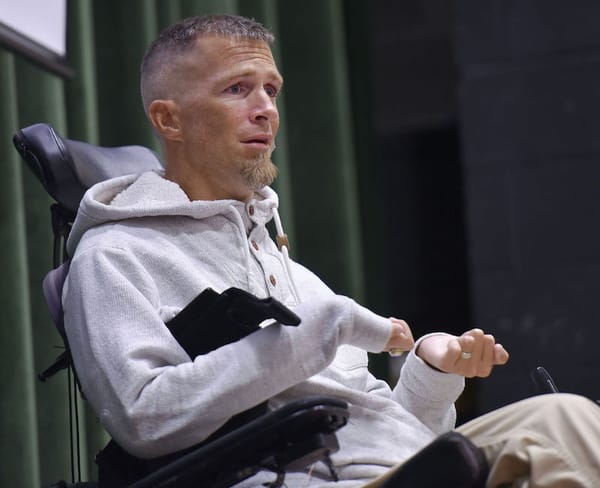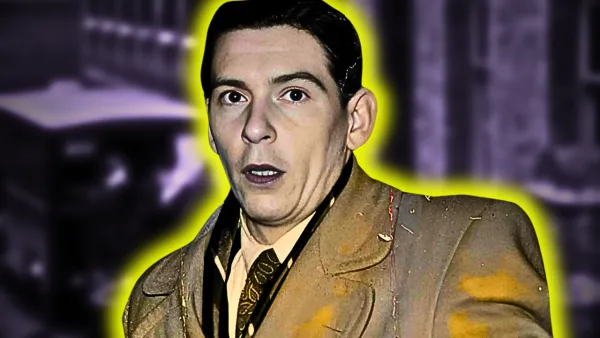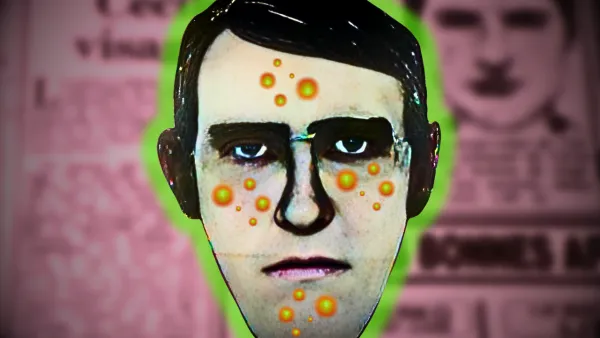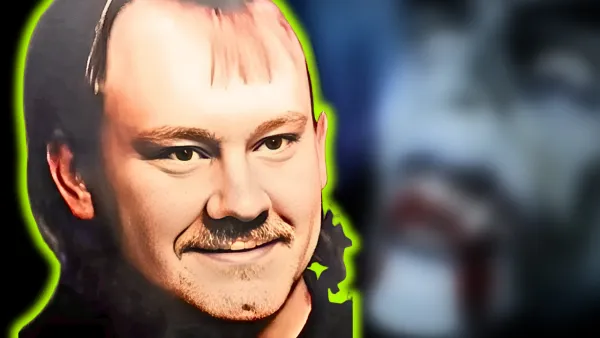The VERY Disturbing, but True Story of Nicolas Claux, "The Vampire of Paris"

During the summer of 1994, the Parisian “Brigade Criminelle” found themselves embroiled in a complex investigation involving a series of random, homophobic .22 caliber shootings. Their tireless efforts led to the arrest of Nicolas “Nico” Claux, a 22-year-old mortician with a sinister connection to the crimes.
While in police custody, Nico made a shocking confession that he had committed a murder, and claimed to be a practicing Satanist. During a body search, the police discovered that Nico was covered in occult tattoos. An investigation through his apartment in the notorious Pigalle district found a macabre collection of disturbing objects, including unidentified skeletal remains, stolen blood bags from a hospital blood bank, funeral jars filled with human ashes, and a vast collection of hardcore S/M videotapes.
Killed Man on Minitel
Before the internet became widely available, the Minitel was a popular computer-based service in France. It allowed people to connect with each other over telephone lines and computer terminals, and many people used it for shopping, messaging, and other innocent purposes. Unfortunately, the Minitel was also popular with gay men looking for sexual partners. This feature of the service was exploited by people like Nico, who would pose as a potential partner to lure in unsuspecting victims.
Thierry Bessonnier was one such victim. He connected with Nico on the Minitel, thinking that he was talking to a potential partner. Unfortunately, Nico was not interested in a relationship but was rather looking for his next victim. Bessonnier’s tragic fate serves as a reminder that even seemingly innocuous technologies can be used for unspeakable acts.
Gay men, in particular, were drawn to the Minitel’s message boards, which provided a forum for them to connect with like-minded individuals and find sexual partners. Unfortunately, this feature of the Minitel was also exploited by those with more nefarious intentions.
Bessonnier, like many others on the message boards, was looking for companionship. He had no idea that the person on the other end of the line was not interested in a relationship, but rather in fulfilling his twisted fantasies. Claux saw Bessonnier not as a potential lover, but as an opportunity to satisfy his dark desires.
The two men arranged to meet in person, but Bessonnier had no idea what was in store for him. Claux was not interested in a consensual sexual encounter — he was looking for a victim. And unfortunately for Bessonnier, he fit the bill.
Death Fascination
When Nicolas “Nico” Claux was just a young boy of around 10 years old, he experienced a traumatic event that would have a profound impact on his life. His grandfather, with whom he was arguing at the time, suddenly passed away from a pulmonary embolism. This tragic event left Claux with a deep sense of guilt and remorse, believing that his family blamed him for his grandfather’s untimely death.
From that moment on, Claux’s fascination with death only grew. He became preoccupied with the idea of mortality and was drawn to the macabre. This obsession manifested itself in a variety of ways, from seeking out gruesome imagery to experimenting with animal mutilation.
As he grew older, Claux’s fascination with death began to take on a more disturbing character. He became increasingly fixated on the idea of cannibalism and began to experiment with consuming raw meat. Over time, his desire to take part in these gruesome acts only intensified.
Forensic psychologist Dr. Stephen Diamond has studied cases like Claux’s and suggests that childhood trauma and a lack of parental nurturing can play a significant role in the development of violent behavior.
“He became cold, he became withdrawn, detached from people. So when one feels completely alienated from the world, this kind of a fascination can be a way of trying to have human interaction — but with a dead person. It’s a way of trying to have a relationship with a human being, but not with a live human being.” — Dr. Stephen Diamond
In Claux’s case, the trauma of his grandfather’s death and the subsequent feelings of guilt and shame may have contributed to his morbid fascination with death and desire for control.
Regardless of the underlying causes of his behavior, Claux’s actions were heinous and caused immeasurable pain and suffering for his victims and their loved ones. His story serves as a stark reminder of the devastating consequences that can result from untreated mental illness and the importance of providing support and resources for those struggling with psychological distress.

Eating The Dead
The court-appointed psychiatrists who examined Nico were appalled by the extent of his sadism and described him as nearly psychotic. In a shocking admission, Nico revealed to investigators that he derived pleasure from consuming strips of flesh from the corpses lying on the slabs of St Joseph hospital mortuary. He went into gruesome detail about his exploits, confessing to desecrating graves in Parisian gothic cemeteries by digging up coffins and stabbing corpses with a screwdriver. He even went so far as to admit to drinking a concoction of human blood, ashes, and powdered protein. Despite the horrifying nature of his crimes, a lack of any real evidence connecting him to other crime scenes meant that Nico was only charged with one count of murder one and six grave robbing counts.
During Nico’s trial, expert psychiatrists testified that he couldn’t be held entirely accountable for his crimes due to his inability to understand the severity of his actions or control his impulses. Despite this, the prosecution maintained that he was fully aware that his actions of killing and mutilating corpses were morally reprehensible. After much debate over the defendant’s mental state, Judge Waechter ultimately found Nico guilty of one count of first-degree murder. However, due to his lack of ability to control his impulses, he was sentenced to a relatively short 12-year term in accordance with law 242 of the French system.


The graveyards where Nico would plunder. Source.




Nico Claux Source.





